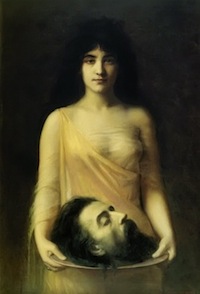
Salome was the daughter of Herodias and one of Herod the Great’s sons Philip. Her mother Herodias and another of Herod’s sons Antipas committed adultery and divorced their spouses and were married in c. 27 AD. Young Salome was dragged along to Israel in this Biblical unholy alliance: “If a man takes his brother’s wife, it is impurity. He has uncovered his brother’s nakedness.” Leviticus 20:21
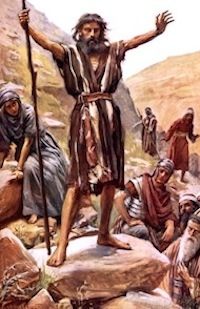
The Jews in the Galilee region, home to Jesus of Nazareth and ruled by Antipas, were outraged at this adultery and marriage. There was one particular man up in the Galilee area, a raging, ascetic, charismatic prophet from the desert of the Essenes named John, who publicly plagued Antipas and Herodias with their sin.
“…(Antipas gave) orders to have John arrested and he had him bound and put in prison (at Machaerus). He did this because of Herodias, his brother Philip’s wife, whom he had married. For John had been saying to Herod, ‘It is not lawful for you to have your brother’s wife.’ So Herodias nursed a grudge against John and wanted to kill him. But she was not able to because Herod (Antipas) feared John and protected him, knowing him to be a righteous and holy man. When Herod heard John, he was greatly puzzled, yet he liked to listen to him.” Mark 6:17-20
Since Antipas is not known as a ruthless killer like his father Herod the Great or his brother Archelaus, it is interesting and somewhat touching that Antipas was moved by John’s words of repentance and by himself would never have arrested a man whom he considered ”holy and righteous.” He protected the Baptist from his nagging, Hasmonean-proud Herodias by just jailing him.
But it was Herodias’ c. 13-14-year-old daughter Salome who finally silenced John.
It was Antipas’ 49th birthday. His small family and large retinue had gone to his beautiful fortress/palace at Machaerus, built on top of a high hill with a 360 degree view of the Dead Sea. It was and is (in Jordan) a sight to behold.
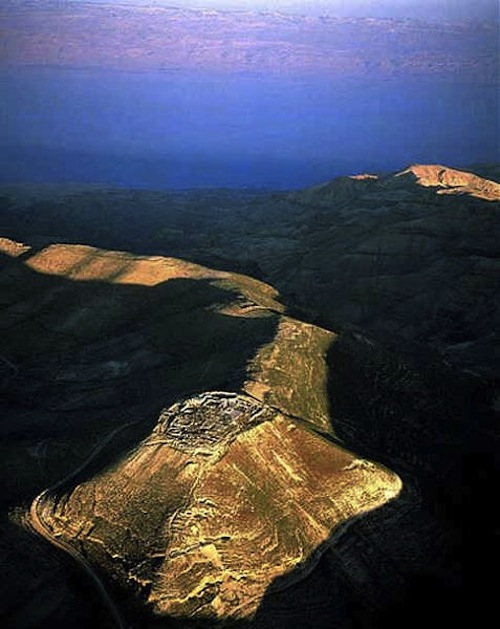
“On his birthday Antipas gave a banquet for his high officials and military commanders and the leading men of Galilee. When the daughter of Herodias (Josephus identifies her as Salome) came in and danced, she pleased Herod and his dinner guests. The king said to the girl, ‘Ask me for anything you want and I’ll give it to you.’ And he promised her with an oath, ‘Whatever you ask, I will give you, up to half my kingdom.’ She went out and said to her mother, ‘What shall I ask for?’ ‘The head of John the Baptist,’ (Herodias) answered. At once (Salome) hurried into the king with the request, ‘I want you to give me right now the head of John the Baptist on a platter.’ (Antipas) was greatly distressed but because of his oaths and his dinner guests, he did not want to refuse her. So he immediately sent an executioner with orders to bring John’s head. He presented it to (Salome), and she gave it to her mother. On hearing of this, John’s disciples came and took his body and laid it in a tomb.” Mark 6:21-29
Young pubescent girls in ancient times were taught by their female relatives to dance with veils, with hand and hip movements, suggestive dances because they would perhaps attract eligible young men as husbands and/or to create flexibility in preparation for childbirth. On the walls of tombs in ancient Egypt there are beautiful paintings of 12-13-year-old girls dancing completely nude except for a thin belt around their genital area.
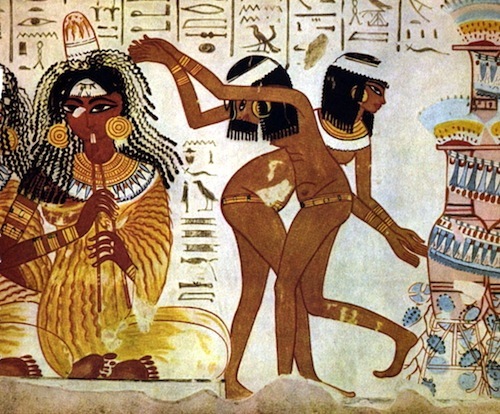
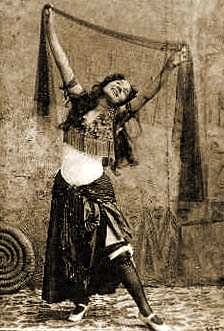
It is impossible to know exactly what kind of dance Salome did, but it was probably a suggestive dance similar to the belly dance. The “belly dance” goes back thousands of years. When it was first introduced to the American public at the Chicago World Fair in 1893, it was shocking to the late Victorian sensibilities. The exhibit was called “The Streets Of Cairo” and featured female dancers from the Middle East and north Africa—un-corseted and naked, almost. There were unsuccessful efforts to close down the exhibit.
Salome seems like an innocent child in the Biblical representation. She knows her stepfather/great-uncle is pleased with her and wanted to give her a big present. She runs to her mother and asks what she should ask for. She hurries back to Antipas, surrounded by all his food and desserts displayed on large platters and blurts out, “Give me the head of John the Baptist right now on one of these big platters.”
Antipas is reluctant to kill the holy man John. He had imprisoned him for a long time in order to keep him and his wife Herodias quiet. He had no choice in front of all his commanders and important men. He was forced to keep his word. He had John beheaded in the basement dungeon of Machaerus and served it up to Salome.
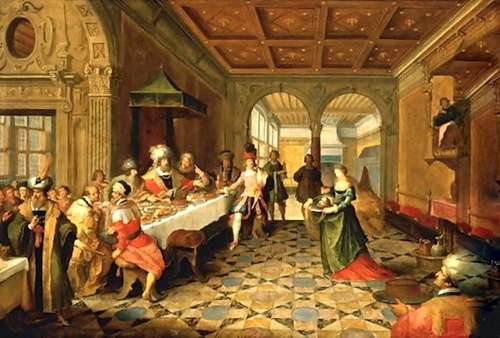
It is sure Antipas’s Birthday Party was a happy one for the conniving Herodias who had used her young daughter as a pawn to check-mate the Baptist.
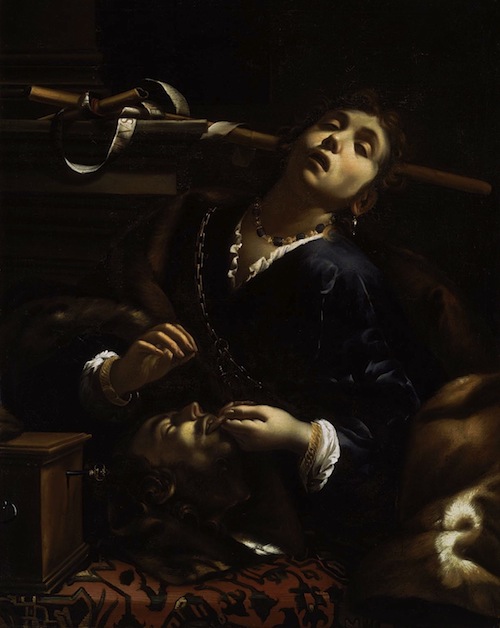
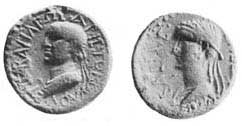
Shortly after the Baptist incident, the innocent pawn Salome was moved around the board to Syria where she was married off to her, (much older by 38 years) mother’s uncle, her great-uncle Philip the Tetrarch. When Philip died several years later in 34 AD, Salome was married off to Aristobulus of Chalcis, a great- grandson of Herod the Great. Since Salome was a great- granddaughter of Herod, the blood lines were not as thick as they were in the first and second generations from Herod. Salome and Aristobulus had three children and seemed to have lived happily ever after.
There is an account, Letter From Herod (Antipas) To Pilate, from the 6th/7th century AD: “…as my dear daughter (Salome), who is dear to me, was playing upon a pool of water which had ice upon it, it broke under her and all her body went down and her head was cut off and remained on the surface of the ice. And, behold, her mother is holding her head upon her knees in her lap and my whole house is in great sorrow.” This patently false account of Salome’s death appears again in the 9th century from the Byzantine Patriarch Nicephorus. Both accounts were made up out of whole cloth, but the fairy tale does give a poetic resonance from Salome holding the Baptist’s head at the instigation of her mother to her mother holding Salome’s head.—Sandra Sweeny Silver
